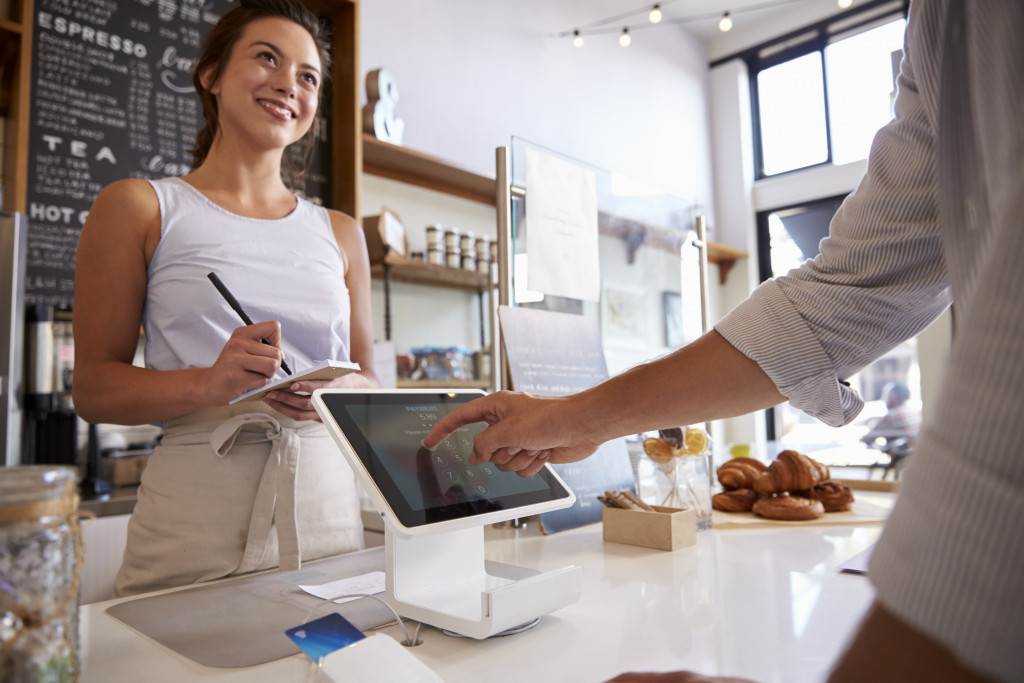Many industries have adopted automation to save costs and boost productivity. In manufacturing, robotic arms are now serving at the assembly line, providing speed and precision to the process. In agriculture, machines have taken the task of seeding, pruning, pest control, and harvesting.
So, it comes as no surprise that robots are coming to the hospitality industry.
Post-Pandemic Robot Revolution
The pandemic dealt a huge blow to businesses serving food and beverage. When the virus started spreading worldwide, establishments that could become a source of transmission were closed down. Aside from pharmacies and supermarkets, many businesses had to shut their doors to customers. Unfortunately, that included restaurants.
For a long time, restaurants and bars were only allowed to operate as long as they only served takeout and delivery. Dining was highly discouraged, especially indoors. Throughout the past year, the safety of servers and cooks was also put in danger as they have to go out to work and face customers.
The events in the past year have led to changes in how restaurants and bars are designed and operate.
Experts foresee that, in the coming years, dining areas will become smaller. More establishments will focus on production to serve takeout and delivery customers. After all, more people expect to use apps to order meals from the comfort of their homes after the pandemic. In some places, the dining area might disappear completely. In 2020, the ghost kitchen concept, which only serves deliveries, grew in popularity.
The pandemic could also make diners more conscious of safety and hygiene in food and beverage services. All these factors can open the door to more robots in the industry.
Soon, diners might prefer restaurants where there are far fewer people around. Robots can take up multiple jobs that are uncomplicated and repetitive. Meanwhile, human employees will be in charge of more complex roles.
A South Korean restaurant started using a trolley-like robot to deliver food to customer tables. It enforces social distancing by minimizing human contact.
Some restaurants and bars may not have any human workers at all. One restaurant in China is run exclusively by robots. Everything from food preparation to serving is done by robots.
Simplify Processes
There are multiple benefits to employing robots in restaurants and bars. There are many tasks involved in food and drinks preparation that are simple, repetitive, and can therefore be done by intelligent machines. Organizing the contents of a commercial refrigerator, for example, or keeping track of inventory in the pantry will be done better if machines are involved.
The responsibility of making dishes can also be undertaken by robots. Chains can benefit from this because it ensures that all their stores serve the same portions and quality of food. Once instructions are fed into the software, the robot can make anything faster and with minimal errors.
Improved Dining Experience

Robots’ quickness and reliability will also guarantee that customers walk out of the establishment with satisfaction. If the processes in the kitchen are simplified, food will be made faster. Diners will not have to wait too long for their food to be served on their table.
The process of ordering and payment will also be easier. Diners can pick on a digital menu that sends orders directly to the kitchen. Payment, meanwhile, can be done as quickly as possible with a swipe of their credit card or a tap on a digital payment app.
Higher Profit
Robots can carry out multiple tasks within the restaurant, and none of them need breaks or days off. They can operate 24/7, which means that the restaurants can serve more customers. Meanwhile, the restaurant does not have to hire multiple people to work during separate shifts.
The simplified process in the kitchen and the dining floor can enable customers to come in and out as quickly as possible. A restaurant that employs robots is more productive.
Moreover, if the customer is satisfied, they likely will come back over and over again.
Cost is no longer an issue. The decreasing prices of sensors and circuit boards make intelligent machines more affordable. The advancements in artificial intelligence have also turned robots into more efficient workers.
Robots are not perfect. They have limitations, too. It will take longer before these machines become sophisticated enough to take over restaurants and bars. However, the benefits they bring are auspicious, especially to an industry hit hard by the present global crisis.
